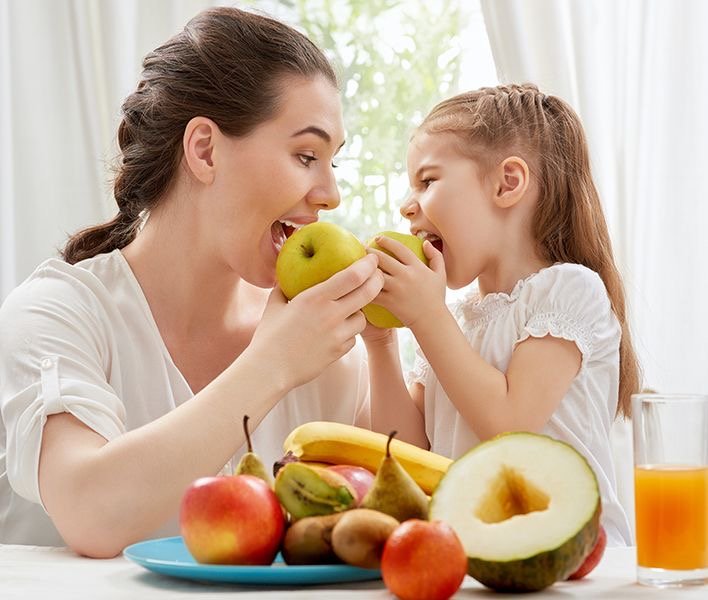As parents, caregivers, or siblings, we all want what’s best for the little ones in our lives. From ensuring they grow strong and healthy to seeing their happy smiles, one of the biggest responsibilities we have is making sure their diet is balanced, nutritious, and safe. However, some foods that seem harmless or even healthy for adults can be dangerous or unhealthy for children. Let’s explore some foods you shouldn’t give to children, and understand why avoiding them will keep your little ones healthy and happy.
- Honey
We all know that honey is a natural sweetener, right? It’s often seen as a healthy alternative to sugar. However, for babies under 12 months, honey can be very dangerous. Honey can contain botulism spores, which are harmful to infants’ undeveloped immune systems. Although it’s safe for older children and adults, babies’ digestive systems aren’t strong enough to fight off the bacteria that may cause severe illness.
So, it’s best to keep the honey away until they’re over a year old!
- Whole Nuts
Nuts are nutritious and packed with healthy fats, proteins, and vitamins. But when it comes to children under five years old, whole nuts pose a significant choking hazard. Little kids often haven’t fully developed the ability to chew and swallow properly. Small, hard foods like almonds, peanuts, and cashews can easily get lodged in their throats.
Instead of whole nuts, try spreading smooth nut butters on bread or mixing finely chopped nuts into their meals. This way, they get all the nutrition without the risk!
- Sugary Drinks and Snacks
We all know how much kids love sweet treats—candies, sodas, cookies, and sugary cereals seem to be their best friends. But there’s a reason why they should only be occasional treats and not part of their daily diet.
Sugar overload can lead to tooth decay, hyperactivity (cue the sugar rush!), and long-term health problems like childhood obesity and diabetes.
And let’s not forget those sugary drinks—sodas and flavored juices—which often contain empty calories without any real nutritional value. Offer your children fresh fruit instead and swap sugary drinks for water or diluted fruit juices.
- Popcorn
Popcorn is a fun, tasty snack that’s perfect for movie nights, but for toddlers and younger kids, it’s a dangerous choking hazard. Those fluffy, crunchy kernels can easily get stuck in their tiny throats. Even the adults sometimes find that annoying kernel husk in their teeth, so imagine how much worse it is for a child!
If your child is under four or five, it’s safer to skip the popcorn and opt for softer, more kid-friendly snacks like cheese sticks or sliced fruits.
- Raw or Undercooked Eggs
Eggs are a powerhouse of nutrition—they’re rich in protein, vitamins, and healthy fats. But when eggs are raw or undercooked, they pose a risk of salmonella, a type of bacteria that can cause serious food poisoning in children (and adults too).
Always make sure that the eggs you serve to kids are well-cooked—no runny yolks or raw cookie dough licking allowed! Scrambled, boiled, or fried are all great options.
- Caffeinated Drinks
We often see adults sipping on coffee or energy drinks to stay awake, but did you know that caffeine is harmful to children? It can make them jittery, hyperactive, and interfere with their sleep. Caffeine also dehydrates the body, something you don’t want for active, growing children who need to stay hydrated.
So, avoid offering coffee, tea, energy drinks, and even certain sodas. Kids have enough energy to power through their days—they don’t need an artificial boost!
- Raw Vegetables
Surprisingly, raw vegetables like carrots, celery sticks, and chunks of cucumber can be risky for very young children. These crunchy veggies are hard to chew and can pose a choking hazard. While veggies are a vital part of a balanced diet, it’s best to cook them or chop them into very small, soft pieces before serving them to young kids.
For older kids who can chew well, introducing raw veggies gradually as snacks is great. Just make sure they’re cut into manageable sizes!
- Processed Meats
While convenient, processed meats like hot dogs, bacon, and sausages aren’t the best choices for children. They are often packed with preservatives, salt, and additives that aren’t good for growing bodies. Hot dogs, in particular, are also a major choking hazard, especially for toddlers, because they are thick and cylindrical.
If you want to offer meat, choose healthier options like grilled chicken, fish, or lean beef. And if you must serve hot dogs, be sure to cut them into small, manageable pieces.
- Fruit Snacks and Gummies
They may have the word “fruit” in their name, but fruit snacks and gummies are far from healthy! These sticky, chewy treats are full of sugar and artificial ingredients with little to no actual fruit content. Plus, they can stick to teeth and cause cavities.
Instead, offer children real fruit like apple slices, strawberries, or bananas for a naturally sweet and nutritious alternative.
- Spicy and Highly Seasoned Foods
While some adults love the heat, spicy foods can be too intense for a child’s sensitive stomach. Spices like chili powder or hot peppers can irritate their digestive system and cause discomfort. It’s also possible for spicy food to cause allergic reactions or exacerbate conditions like acid reflux in children.
Stick to mild flavors when preparing meals for kids. You can gradually introduce more flavors as they grow older and their tolerance for spicy foods increases.
Wrapping It Up: Keep it Balanced and Fun
Children’s diets should be fun, nutritious, and safe! By avoiding these potentially dangerous or unhealthy foods, you’re helping them grow into healthy and happy individuals. Encourage them to try whole foods like fruits, vegetables, lean meats, and whole grains while steering clear of foods that pose choking hazards, contain harmful bacteria, or lack nutritional value.
Remember, kids learn by watching you! If they see you eating a balanced and healthy diet, they’ll want to do the same. Plus, cooking and choosing foods together can be a fun family activity that helps them develop healthy eating habits for life.
Stay safe, healthy, and enjoy every moment of nurturing your little ones!



